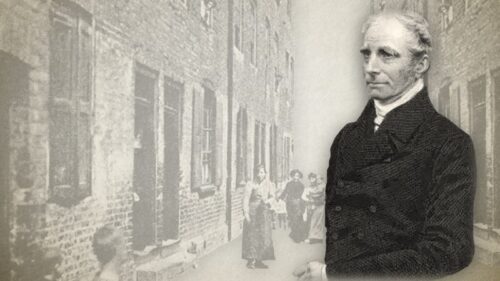Charles Buck
Charles Buck (1771-1815) was an English Independent minister, best known for the publication of his “Theological Dictionary”. According to the “Dictionary of National Biography”, a Particular Baptist minister named John C. Ryland (1723-1792) assisted Buck by writing many of the articles for the aforementioned publication. One may conclude, based not only Buck’s admiration for his friend Ryland, but also on the entries in his Theological Dictionary, that he stood head and shoulders with the High-Calvinists of his day.
Charles Buck on the Biblical Covenants (Complete)
Charles Buck's Theological Dictionary
-
137 Angel
ANGEL A spiritual intelligent substance, the first in rank and dignity among created beings. The word angel is Greek, and signifies a messenger. The Hebrew word signifies the same. Angels, therefore in the proper signification of the word, do not import the nature of any being, but only the office to which they are appointed especially by way of message or intercourse between God and his creatures. Hence the word is used differently in various parts of the scripture, and signifies, 1. Human messengers, or agents for other, 2 Sam. 2:5. "David sent Messengers (Heb. angels) to Jabesh Gilead, Prov. 13:17. Mark 1:2. James 2:25.--2. Officers of the churches, whether prophets or ordinary ministers, Hag. 1:13. Rev. 1:20.-- 3. Jesus Christ, Mal. 3:1. Isa. 63:9.—4.…
-
136 Temporal
TEMPORAL A term often used for secular, as a distinction from spiritual or ecclesiastical; likewise for any thing belonging to time in contrast with eternity.
-
135 Time
TIME Mode of duration marked by certain periods, chiefly by the motion and revolution of the sun. The general idea which times gives in every thing to which it is applied, is that of limited duration. Thus we cannot say of the Deity that he exists in time, because eternity, which he inhabits, is absolutely uniform, neither admitting limitation nor succession. Time is said to be redeemed or improved when it is properly filled up, or employed in the conscientious discharge of all the duties which devolve upon us, as it respects the Divine Being, ourselves, and our fellow-creatures. Time may be said to be lost when it is not devoted to some good, useful, or at least some innocent purpose; or when opportunities of…
-
134 Darkness
DARKNESS The absence, privation, or want of natural light. In Scripture language it also signifies sin, John 3:19. trouble, Is. 8:22. obscurity, privacy, Matt. 10:27. forgetfulness, contempt, Ecc. 6:4. Darkness, says Moses, was upon the face of the deep, Gen. 1:2. that is to say the chaos was plunged in thick darkness, because hitherto the light was not created. Moses, at the command of God, brought darkness upon Egypt, as a plague to the inhabitants of it. The Septuagint, our translation of the Bible, and indeed most others, in explaining Moses's account of this darkness, render it "a darkness which may be felt;" and the Vulgate has it, "palpable darkness;" that is, a darkness consisting of black vapours and exhalations, so condensed that they might…
-
133 Dispensation
DISPENSATION The act of dealing out any thing. The two different methods of revealing the truths of the Gospel before and after Christ's death are called the Old and New Testament Dispensation. The dealing of God with his creatures in his providence is called a dispensation. The state of supernatural or revealed theology may also be divided into six dispensations. 1. From the fall of Adam to the flood.--2. From Noah to the giving the law.--3. From that time to the time of David and the prophets.--4. From David to the Babylonish captivity.--5. The period from that, to the time of Christ, finishes the Old Testament dispensation.--6. From Christ to the end of time, the Gospel dispensation. The superiority of the fast dispensation, as Dr.…
-
132 Ages Of The World
AGES OF THE WORLD The time preceding the birth of Christ has generally been divided into six ages. The first extends from the beginning of the world to the deluge, and comprehends one thousand six hundred and fifty-six years. The second, from the deluge to Abraham's entering the Land of Promise in 2082, comprehends four hundred and twenty-six years. The third from Abraham's entrance into the promised land to the Exodus in 2523, four hundred and thirty years. The fourth, from the going out of Egypt to the foundation of the temple by Solomon in 2992, four hundred and seventy-nine years. The fifth, from Solomon's foundation of the temple to the Babylonish captivity in 3416, four hundred and twenty-one years. The sixth, from the Babylonish…



